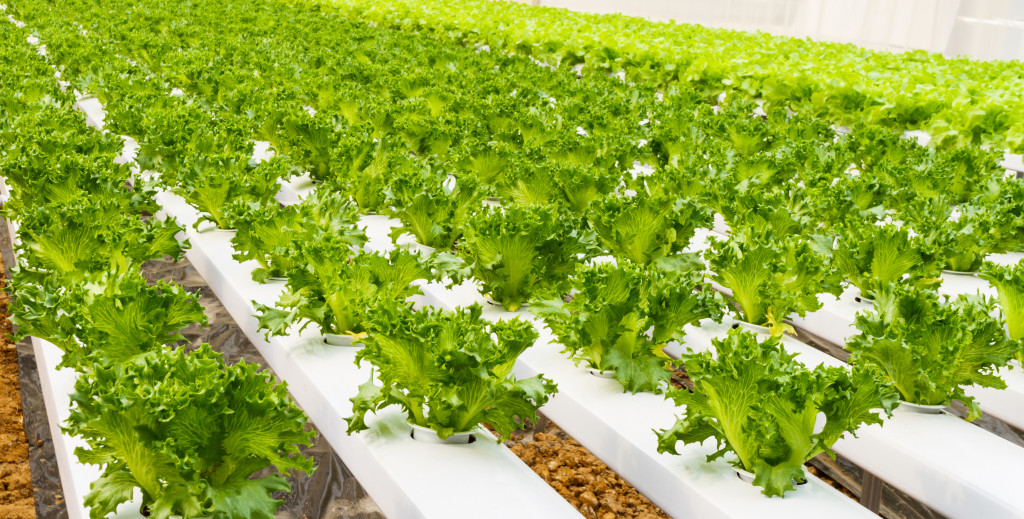Food production is one of the most significant contributors to climate change. That’s why it’s crucial to find ways to streamline your food production that are both environmentally and socially responsible. The following eight methods will help you do just that.
1. Grow more crops on less land
One of the best ways to reduce the environmental impact of your food production is to use less land for farming. This can be done by growing more crops on the same land or using more efficient farming methods. For instance, you can look into companion planting, which involves growing different crops to optimize land usage.
2. Choose sustainable foods
Another way to reduce the environmental impact of your food production is to choose sustainable foods. Sustainable foods come from a source that can be replenished or doesn’t damage the environment, such as organic foods.
Producing sustainable foods can be a little more expensive, but it’s worth it for the health of the planet. You can also help consumers become more environmentally conscious by providing them with the option to purchase sustainable foods.
3. Use innovative farming methods

Innovation is critical when it comes to farming. By using innovative farming methods, you can reduce the amount of water and energy used in food production. Some innovative farming methods include compost to improve soil quality, greenhouses to extend the growing season, and aquaponics to produce fish and vegetables together.
You could also use unmanned aerial vehicles (UAVs) to map crops and collect data or use robots to automate weeding and harvesting tasks. This will help you reduce your reliance on fossil fuels and improve your overall efficiency.
4. Recycle wastewater
One of the most significant issues with food production is the amount of wastewater it creates. This wastewater can contain harmful chemicals and pathogens that can damage the environment. That’s why it’s important to recycle as much of this wastewater as possible.
You can do this by installing a wastewater treatment system or using water-efficient irrigation methods. You can also recapture the water used to cool buildings or water livestock and use it to irrigate crops. By doing this, you can reduce the amount of wastewater produced by your farm.
5. Regulate food transportation
Food transportation is another area where we can reduce the environmental impact of our food production. By regulating how much food is transported, you can reduce the amount of fossil fuels used to transport food and the amount of CO2 emitted into the atmosphere.
One way to do this is by staggering the production of different foods. This will minimize the need to transport food long distances. You can also try shipping food by rail or boat instead of a truck. Doing so can reduce CO2 emissions and minimize your carbon footprint.
6. Use energy-efficient machinery in the factory
Factory machinery can use a lot of energy. That’s why it’s important to use energy-efficient machinery in the factory. This will reduce the amount of energy used to produce food. You can also use electrical control panels because they are a great way to save energy in the factory. They allow you to control how much energy different machines use.
Of course, not all machinery can be replaced with energy-efficient models. In those cases, you can use machine covers to keep the machines cool and reduce their energy consumption. Or, you could try using renewable energy sources to operate the machinery.
7. Use natural fertilizers
One way to reduce the environmental impact of your food production is to use natural fertilizers. Natural fertilizers come from natural sources, like plants or animals. This will allow you to reduce the amount of chemical fertilizers used in food production.
You can use natural fertilizers by applying them to the soil before planting crops. You can also add them to animal feed or use them to create compost. By doing this, you can improve the quality of the soil and reduce the amount of pollution caused by food production.
8. Recycle agricultural waste
Agricultural waste can be a substantial environmental pollutant. That’s why it’s crucial to recycle agricultural waste by using it as a fertilizer or as fuel. This will help reduce the amount of pollution caused by food production.
You can recycle agricultural waste by using biogas digesters. These digesters convert the waste into methane, which can be used for power generators or vehicles. You can also use the waste to create compost, which can improve soil quality.
By using these eight methods, you can streamline your food production and reduce the environmental impact of your food production. Not only will this help the environment, but it will also help protect your social responsibility. So, what are you waiting for? Start streamlining your food production today!









